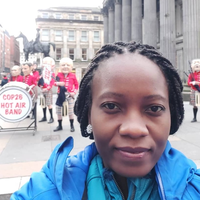Andy Aitchison / Oxfam
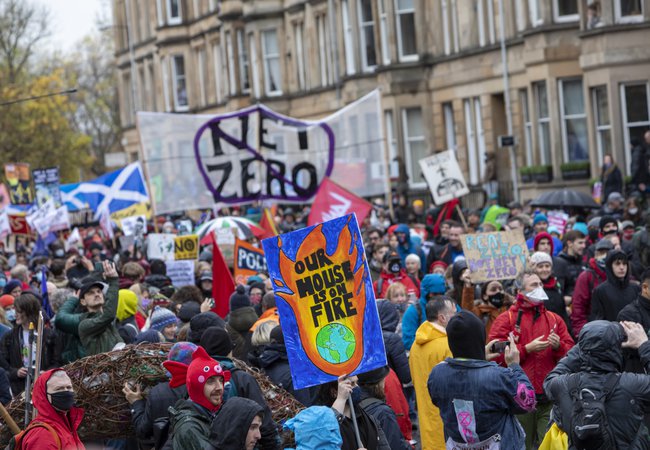
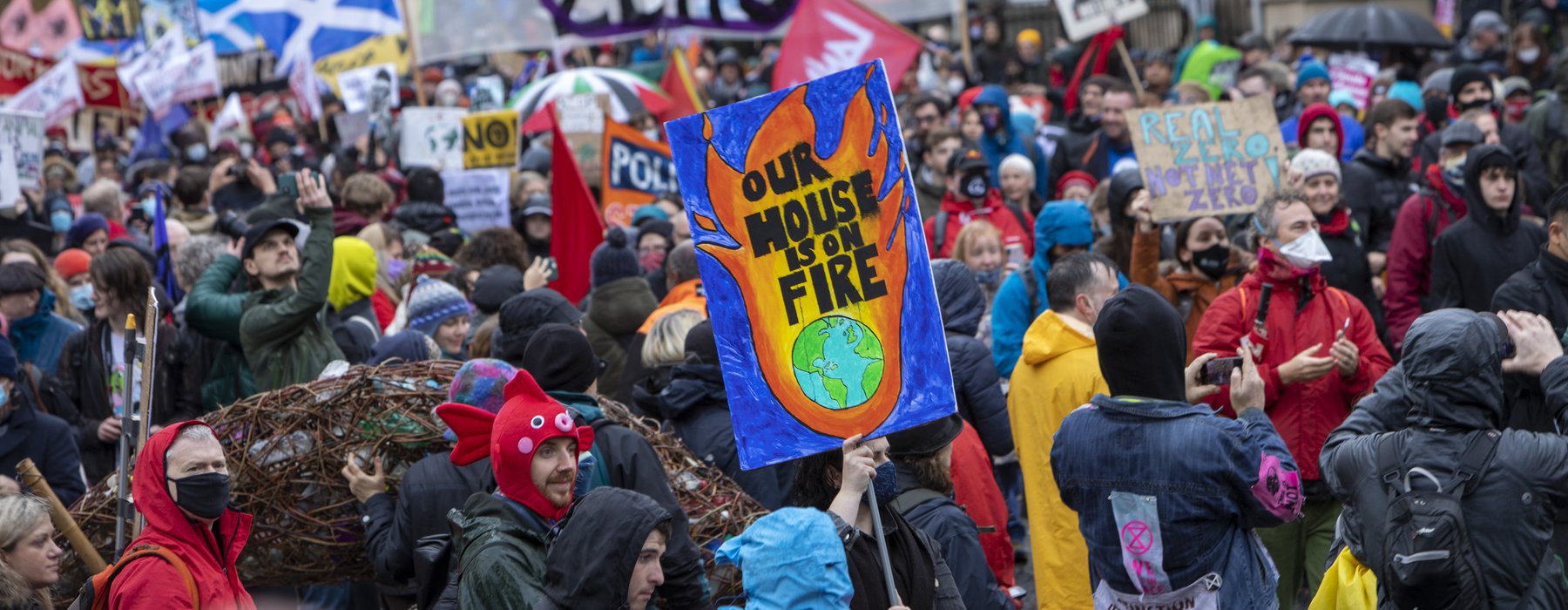
Climate Justice after COP26
My name is Juliet Suliwa Kasito. I work in Malawi to help communities cope with the impacts of climate change. I’m just back from Glasgow, where I attended the UN Climate Summit, COP26.
My country is already seeing the devastating impacts of climate change. And my message to governments attending the Summit was clear. The Summit was a real opportunity for world leaders to make the climate commitments needed. To keep the goal of limiting global warming to 1.5 degrees. And to provide the funding needed to support those on the frontlines of the crisis.
Juliet’s message from communities in Malawi to rich countries at #COP26: “We need action now…we will not wait for 2030.”
— Oxfam (@oxfamgb) November 13, 2021
With just hours left to negotiate the final deal, we need urgent progress on emissions cuts, climate finance & funding for #LossAndDamage. #ClimateActionNow pic.twitter.com/ztRkIyPStu
“‘Our suffering will not stop, we will not wait for 2030 - it’s happening now. So the actions of stopping emissions, releasing the funds should happen now.’”
Juliet Suliwa Kasito
I joined colleagues and partners from Peru, Uganda, Jordan and Comoros in the Oxfam team. In the fight for climate justice, it’s so important that the voices from the most affected people and areas are heard at Summits like these.
Credit: Margaret Masudio
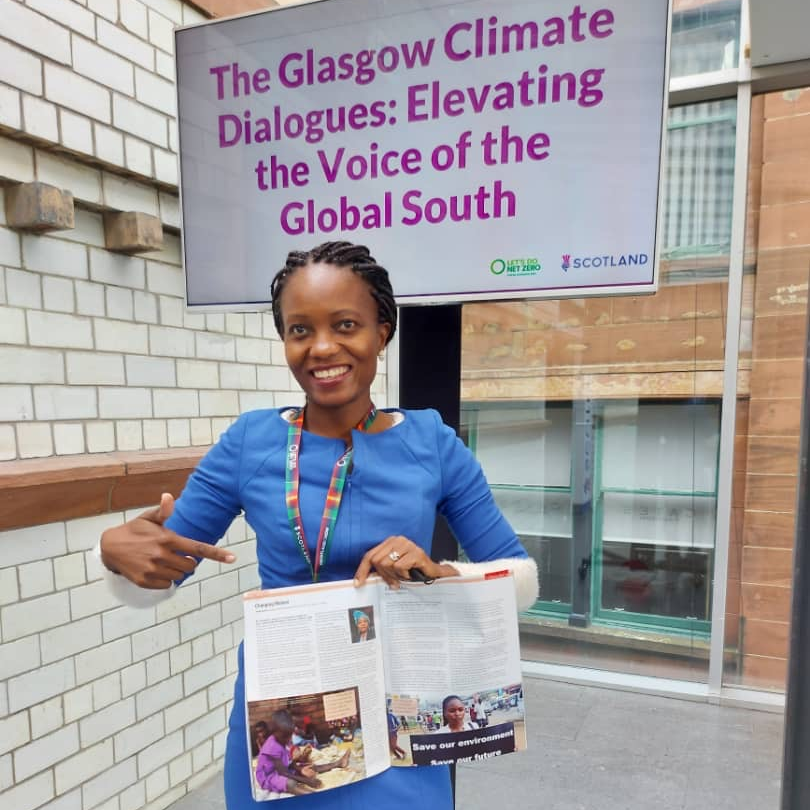
Attending the Glasgow Climate Dialogues event, elevating the voice of the Global South.
Did COP26 deliver for Malawi and other countries on the frontlines of the climate crisis?
COP26 was described as the world’s last best chance to get runaway climate change under control. But we saw very little of the climate action that’s so urgently needed.
Day 3 #COP26Glasgow
— Danny Sriskandarajah (@dhnnjyn) November 3, 2021
I'm with Juliet Kasito @jnyksie Oxfam's climate advisor in #Malawi
Droughts, cyclones & scorching heat are wreaking havoc on a population mostly reliant on farming
She's calling for leaders to keep 1.5℃ in reach & provide funds to support Malawi to adapt pic.twitter.com/YI0brs417M
Some key headlines from the Glasgow Climate Pact:
- World leaders at the summit agreed to a Glasgow Climate Pact, but the world is still a long way off track to cut emissions fast enough.
- The Pact agreed at the summit asks countries to make new commitments by the time the next summit rolls around, but it doesn’t force them to. This means the next 12 months are the real test of whether this year's climate summit delivered anything meaningful.
- Strengthened climate plans must include a fast shift away from fossil fuels.
- The language used in the Pact has rightly been criticised as too weak, but by mentioning fossil fuels for the first time in the Pact, a clear signal was sent that they are on their way out.
- The talks failed to reach a commitment to providing support for communities facing the consequences of irreversible climate impacts like sea-level rise - this is called 'Loss and Damage finance.' This was hugely disappointing, but Oxfam and many others put rich countries under real pressure on this and will continue to do so.
Credit: James Chavula
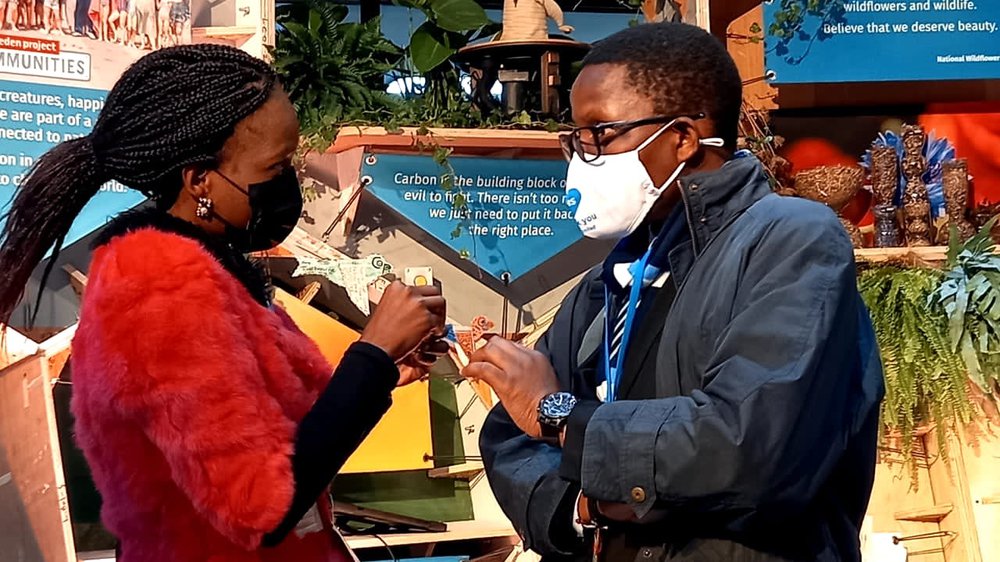
Meeting with Chomora Mikeka, Director of Science, Technology and Innovation, Malawi
- On the positive side, the Scottish Government became the first country to commit new and extra finance to Loss and Damage. This was described by them, “not as an act of charity but as an act of reparation”.
- We were delighted by the Scottish solidarity. But many large rich nations continue to leave the communities hit first and worst by climate change to pick up the tab for a crisis they didn’t cause.
- We fought hard to achieve a commitment to double the amount of finance by 2025 to support communities adapt to the impact of the climate crisis. This falls short of the cash needed, but it is a step forward. If delivered, it will take climate adaptation finance to $40bn by 2025.
- We must now hold rich nations to account for delivering this promise. And they must deliver it through grants, not loans. Loans heap yet more debt onto low-income nations.
My reaction
I left Glasgow feeling frustrated by world leaders. But I welcomed the solidarity shown by the Scottish Government on Loss & Damage. I was inspired by Sabrina and Idris Elba’s talk on how climate change has affected food systems, hitting local farmers in low-income countries the hardest. It was striking to see the shared language and experience of the climate crisis by farmers in Malawi and Scotland.
Glasgow was an incredible experience for me. I was inspired by my colleagues and by the amazing people power on the streets of Glasgow. We saw people of all ages and backgrounds speaking out.
The struggle for climate justice goes on
The UK Government holds the Presidency of the UN Climate Negotiations for the next year. It is essential for countries like Malawi that they lead by example. That’s why Oxfam has launched this important new campaign action. We're calling for the UK Government to get to work in the first 100 days after COP26:
- End the era of fossils fuels, starting now. The first step is to scrap plans for the Cambo oil field and the coalmine in Cumbria;
- Respond to the demands of low-income countries for climate finance. The UK must support people already facing the impacts of the climate crisis;
- Use the UK's power as President over the next year by ensuring that governments strengthen their 2030 emission reduction targets. They must follow through on their commitments.
Please take this action and share it with friends and family, as well as on social media.
As Gabriela Bucher, Oxfam International Executive Director says, “It’s painful that diplomatic efforts have once more failed to meet the scale of this crisis. But we should draw strength from the growing movement of people around the world challenging and holding our governments to account for everything we hold dear. A better world is possible. With creativity, with bravery, we can and must hold onto that belief.”
I will be holding onto that belief as I continue to fight for climate justice. I hope you will join me.
